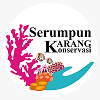The Coral Reefs Health Level in The Local Use Zone of Lentea Island Wakatobi National Park, Indonesia
DOI:
https://doi.org/10.61548/cmj.v1i1.9Keywords:
diversity, Lentea Island, WakatobiAbstract
Coral reefs are marine resources that are most vulnerable to disturbances from both human and natural activities. Fishing activities that are not environmentally friendly such as bombardment and potassium are still found in coastal areas and threaten the resources in the conservation area. This research will look at the health condition of coral reefs in conservation areas, especially in local utilization zones. In this zone the activity of exploiting marine resources is very high, therefore data is needed to find out and prove whether the use of marine resources is damaging. Locations were selected at four stations on Lentea Island which are included in the local use zone in the conservation area. The assessment uses the PIT (Point Intercept Transect) method. The results of the assessment showed that the coral reefs on Lentea Island were in the bad to good category (24.0% -50.3%). This data shows that there are still destructive marine resource utilization activities in the local utilization zone.Downloads
Download data is not yet available.
Downloads
Published
2023-06-02
Issue
Section
Articles
License
Copyright (c) 2023 Coastal and Marine Journal

This work is licensed under a Creative Commons Attribution-ShareAlike 4.0 International License.

This work is licensed under a Creative Commons Attribution-ShareAlike 4.0 International License.
Copyright Transfer Terms
- The author in submitting online understands that if the manuscript is accepted for publication, the copyright of the manuscript will be given to the Coastal and Marine Journal as the publisher of the journal.
- Copyright includes the exclusive right to reproduce and distribute articles in all forms of media, including reprints, photographs, microfilm and other similar reproductions, as well as their translations.










